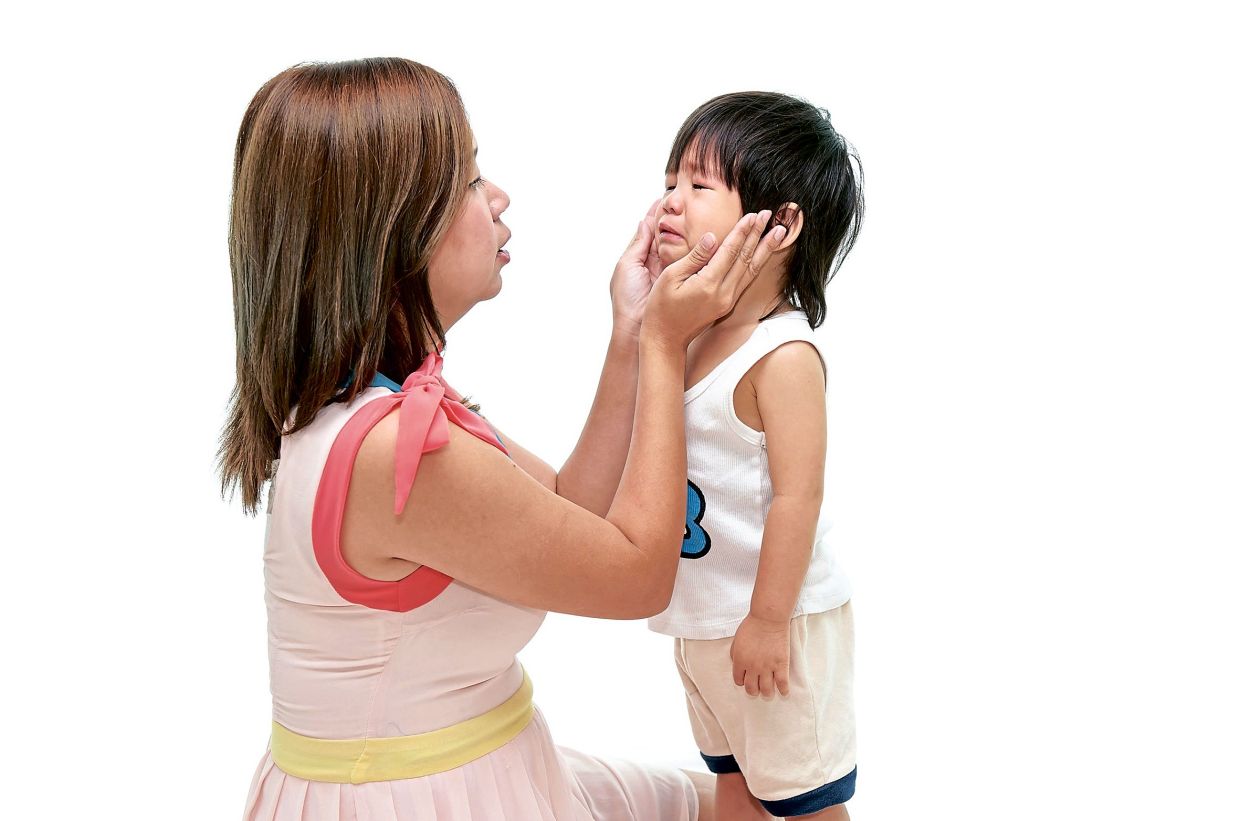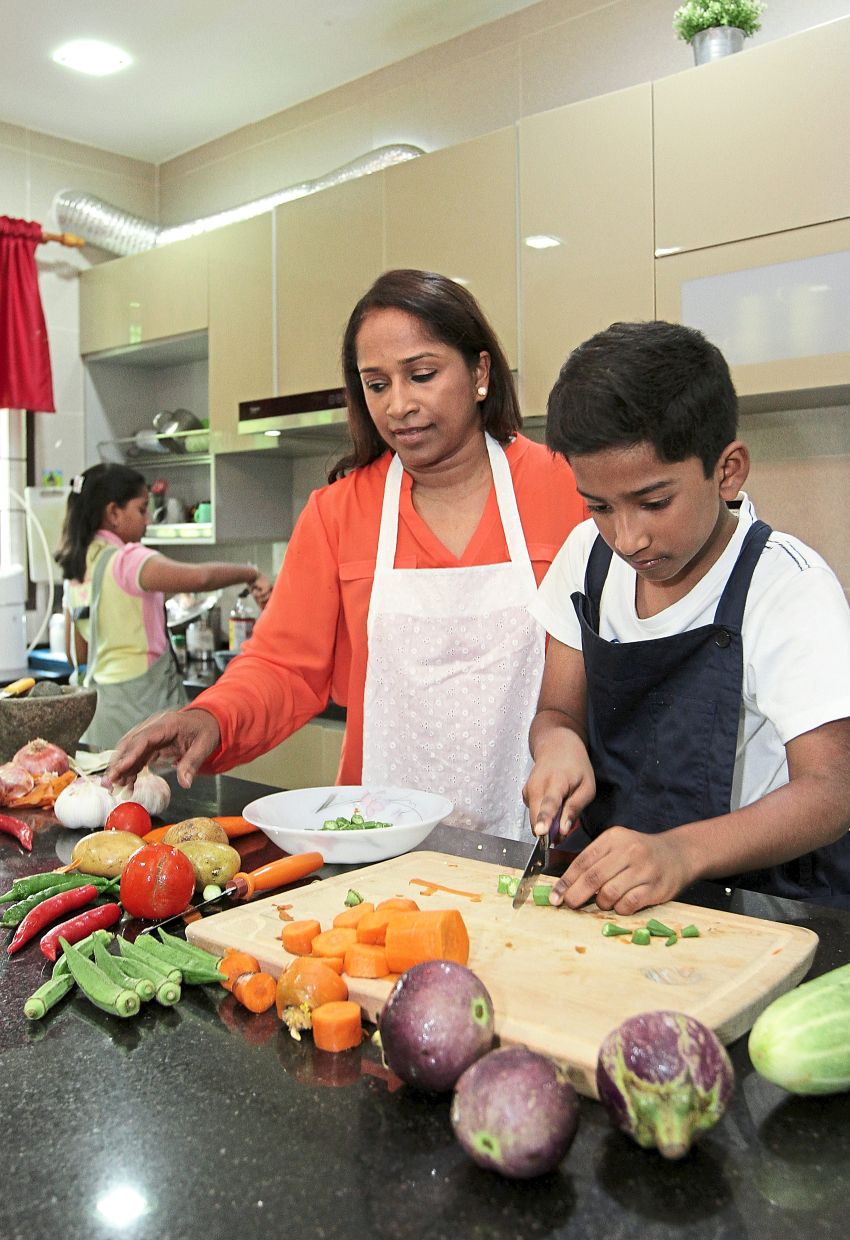
Many parents, especially mothers, probably breathed a sigh of relief when it was recently announced that schools will eventually reopen throughout this month (July 2020) for all students.
The Covid-19 pandemic has meant that parents have had to not only juggle working from home with household chores, but also act as a substitute teacher to their children and tech troubleshooter for those with online classes.
The change in routine has affected children too, as they have had to get used to learning without their school teachers being on hand to help with problems right away, with parents having to learn to step up and play that role.
The shift no doubt created stress for both parents and children.
Prolonged periods of staying at home indefinitely can put a strain on anyone, and children may act out if they aren’t accustomed to verbally expressing emotions like fear, worry, sadness, anxiety or anger.
Even when schools reopen, parents may be worried that their children will be exposed to the risk of being infected with the SARS-CoV-2 virus that causes Covid-19.
And for those in schools that have so many students that they are unable to implement adequate social distancing, even while running two sessions of classes, a rotation system of attending school means that children will still be spending half their schooldays at home.
There is no single formula to solving a tense situation at home.
But creating structure encourages children to view this remaining stay-at-home period less as an extended vacation and more like studies as usual.
Provide them with a routine and set reasonable expectations that will give them a sense of stability and control, especially in easing them back towards starting full-time classes again.
Here are some tips for creating routines and healthy habits to helping mothers and children cope during this time.
> Create structure
Planning out an itinerary can help a child visualise and prepare for what they need to do, whether it’s a daily or weekly schedule.
Younger children may benefit from a pictorial schedule (drawings, stickers, etc), which can help encourage excitement or anticipation.
Build a stay-at-home routine that not only helps your child to focus, but matches up with your own schedule too.
For example, if a lesson or assignment takes 30 minutes or an hour to complete, you can plan shorter work meetings to coincide with that time.
> Carve out bonding time
Despite being in the same house together for longer periods, you may not be bonding with your kids as much as you might think you are, especially if you have to work from home too.
Plan to do activities together, such as preparing meals, folding laundry or other light chores where you get to talk to each other, while interacting as a team.
> Make use of technology
We have many new gadgets available to enable people to keep in touch very easily.
Video calls, online games and even learning a language are easily accessible activities that help you connect with other people with common interests online.
Pick something that you and your children will both enjoy and dive into it together.
If you have family living in other states and have not seen them for awhile, arrange a group call.
With the right gadgets, you can even display the call on your TV screen so that it will be just like having them in your living room!
 Having to stay at home for a long time indefinitely might cause anxiety in your child. — Positive Parenting
Having to stay at home for a long time indefinitely might cause anxiety in your child. — Positive Parenting
> Get up and move
Many of us might have neglected the physical aspect of health during the earlier months of the movement control order (MCO) when we were pretty much stuck at home all the time.
Getting your blood circulating during the day with some physical activity helps motivate you to keep going during the day.
Depending on the age of your child, you can customise the type of activity, like dancing, fitness video games, a game of charades, or outdoor games of catch, hopscotch or skipping.
> Take note of anxiety
As a parent, you are responsible for helping your child to understand complex emotions and learn to deal with them in a healthy way.
This probably seems like added pressure on a parent, as you yourself may be experiencing the same feelings.
But it is an opportunity to deepen your relationship with your child if you are both experiencing the same sort of stress and learn to work through it together.
You have to lead by example.
Handle any tantrums or irritable behaviour by talking it out, listening to your child’s anxieties, sharing with them your experience of the same feelings and stressing the importance of being strong together during these times.
> Pay extra attention to special needs kids
Special needs children may struggle from not having the level of structure provided by schools.
To create more predictability and structure at home, reach out to your child’s special needs teacher for advice on adapting strategies used at school for an at-home situation.
> Talk carefully about Covid-19
How things are said is equally as important as what you actually say. Bonding moments need to be created and can be done by doing activities like cooking together that also allow time for chatting. — Filepic
Bonding moments need to be created and can be done by doing activities like cooking together that also allow time for chatting. — Filepic
Even if someone is saying something positive, people respond to non-verbal cues that indicate there is more behind your words.
When it comes to discussing Covid-19, state facts and try not to seem overly anxious.
Be discreet when discussing anyone you know who may have contracted Covid-19, especially if it is someone that your child knows and is close to.
You never know when your child might be listening to adult conversations in the next room!
It’s best to provide context to younger children when discussing Covid-19.
Explain that it is like having a bad flu and be specific about why social distancing is helping to control the situation – you might want to prepare some notes by doing research online or invite them to look for information together with you.
Reassure them that many kids will stay healthy if they follow the guidelines of hand hygiene and social distancing.
> Focus on the positive
Keeping a positive mindset will help both children and adults cope with the current state of things.
With families staying at home more, there is plenty of opportunity for everyone to do some self-reflection.
If all your immediate family members are safe, healthy and still employed, you are the fortunate ones.
Cultivating gratitude and the flexibility to adapt to any situation is a critical life skill that children can learn from the good example set by their parents.
Although the earlier part of the MCO was likely stressful and difficult, at least many families got to spend more time together.
May that have become a new habit for better quality family time, even now with the more relaxed conditions of going out.
Even though the continued social-distancing measures may appear to be inconvenient, we will someday look back on this time and know that we had the experience of getting through something difficult together.
Datuk Dr Nor Ashikin Mokhtar is a consultant obstetrician and gynaecologist, and a functional medicine practitioner. For further information, email starhealth@thestar.com.my. The information provided is for educational and communication purposes only and it should not be construed as personal medical advice. Information published in this article is not intended to replace, supplant or augment a consultation with a health professional regarding the reader’s own medical care. The Star does not give any warranty on accuracy, completeness, functionality, usefulness or other assurances as to the content appearing in this column. The Star disclaims all responsibility for any losses, damage to property or personal injury suffered directly or indirectly from reliance on such information.